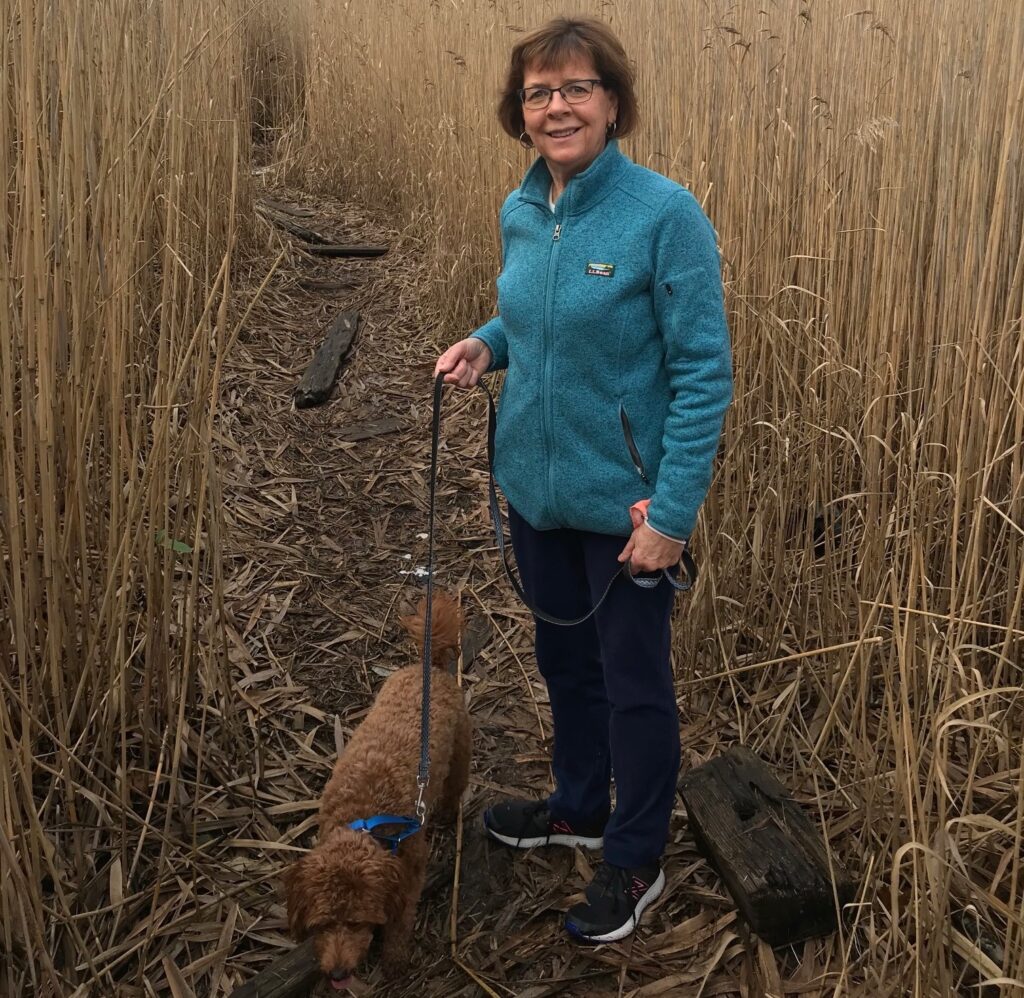
Peer Helper Profile: Deb Dowd-Foley
By Kerry J. Bickford, VOICES Editor
Deb Dowd-Foley is a licensed social worker who has devoted her professional career to helping people as a Caregiver Specialist for the elderly. She has talked to many bereaved spouses in her work over the years, but it was not until she experienced personal grief -- the loss of her eldest child and only son -- that she had “some idea of what their grief was like.”
Brian Foley grew up in a typical home in Charlton, MA, where he was the oldest of three children. His mother described him as an “average kid” with an “ordinary” story. He was “happy-go-lucky,” polite, loved sports, and played hockey and baseball throughout grade school, but this seemed to change when he entered high school. His grades began to slip, and they discovered he had been getting pills from an acquaintance with ADHD, which he said “helped him concentrate.” His parents’ swift response was to have him tested, and it turns out Brian had ADHD, so he began a therapeutic dose of medication that seemed to help put him back on track.
After graduating from St. John’s Prep and spending a post-graduate year at Bridgton Academy, Brian headed to Assumption College -- where he began experiencing anxiety in his freshman year. Deb noticed the change in him, but it seemed like she couldn’t reach him. She felt helpless when he began showing signs of drug use again. He did not return for his junior year and instead found a job doing food prep at a local restaurant. Eventually, he secured a position at the Robert Kennedy School for Boys, where he worked his way up to supervisor. It was a job Brian loved, and “he was good at,” recalled his mother. It seemed to give him the confidence he needed, but it was also the tipping point. He could no longer conceal his habit or balance his use with real-life responsibilities, including work. When Brian failed a probation-administered drug test in May 2013, he ended up at Spectrum to address his substance use.
Within a few months, Deb became involved in the Worcester Learn to Cope group and Al-Anon, where she learned about and began practicing the three C’s:
- I didn’t cause it
- I can’t control it
- I cannot cure it
She describes these meetings as “empowering” because they helped her “let it go” so that she was able to move on in her own life and learn what she could about the disease while Brian got the help he so desperately needed.
When Brian left Spectrum, he reconnected with the family of his childhood friend, Fran, and went to work in their family business. They knew his history but offered him a chance to work with them and rebuild his life. Before long, he was updating their website and engaged in work that seemed to excite him. The sharp, witty Brian seemed to be back, as he settled into his new job -- a job that it turns out, he loved. The feeling was mutual, and Fran invited Brian to help him build a tiny house. They bonded over this project, which was filmed by HGTV, but Fran was soon off to another job as a tour guide in another part of the country.
Soon after, Brian received his one-year AA coin, with his family present, on June 5, 2014 -- a huge milestone. In a heartfelt conversation with his mother, he confided that he “just wanted to be married, have kids and a house, like you and Dad.” It broke Deb’s heart to recall those words. Still, she also remembers telling Brian that she forgave him for everything he had put his family through,” meaning all the behaviors that addicts engage in -- like stealing and avoiding the people who love them. Tragically, Brian died by overdose sometime that night or the next morning, but he died knowing that his mother and father loved and forgave him — and that was a gift.
Deb attended AL-Anon meetings for a while after Brian’s death because she felt like she needed it “to process” what had happened. Still, it soon became apparent that she needed to connect with more people who, like her, were experiencing “profound grief.” People slowly reached out, and she began attending a meeting at Harrington Hospital for mothers who had lost a child, where she connected and found peer support with others who were grieving.
In 2015, Deb joined forces with another bereaved mom Aileen Lovejoy to offer a GRASP (Grief Recovery After a Substance Passing) support group in Worcester, MA. They eventually changed their name to HALO-18 (Help After Loss From Overdose), and this group has continued to meet since then, although virtually since March 2020. Deb, like so many other peer helpers, turned her family’s agonizing loss into a mission of support and comfort to distraught mothers, fathers, siblings, and loved ones.
But that’s not all she has done. Deb has told her grief story -- at UMASS Medical Center in Worcester and Overdose Awareness Day -- and serves on the Worcester District Attorney’s Opioid Task Force and Overdose Awareness Committees. Deb was also instrumental in planning a Memorial Stone at Blackstone Heritage Visitors Center in Worcester, a joint effort of Learn to Cope and the Department of Transportation, and a second dedication at Peace Park in partnership with Dr. Matilde Castiel.
Deb continues to lean on her experience to help bear witness to others’ grief, and this time she has more than a social work license to rely on. She feels “honored, blessed, and grateful” to be in this position, despite her own grief being the reason she can relate so profoundly to their pain. She exemplifies hope and survival amidst the ruins of addiction, and no doubt, Brian would be proud of his mother’s determination and compassion.
